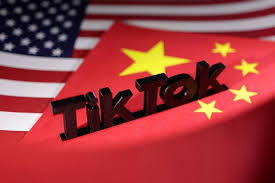Two days after authorities shut down Silicon Valley Bank in a collapse that left billions in savings unclaimed, state regulators shut down New York-based Signature Bank on Sunday, the third-largest failure in US banking history.
The Federal Deposit Insurance Corporation (FDIC) assumed management of Signature, which, according to the New York State Department of Financial Services, had $110.36 billion in assets and $88.59 billion in deposits at the end of the previous year.
The US Treasury Department and other bank authorities declared in a joint statement that “no losses will be borne by the taxpayer” and that all of the depositors of Signature Bank and Silicon Valley Bank will get full compensation.
According to a reporter on the scene, workers appeared to congregate at the company’s Manhattan headquarters on Sunday for meetings while ordering catering from the Italian restaurant Carmine’s and Starbucks coffee. Upon the announcement of the closure, a small number of people slowly left the premises.
An inquiry for comments was not immediately answered by the lender’s representatives.
The fall of Silicon Valley Bank on Friday, the second-largest in US history after Washington Mutual, which went down during the 2008 financial crisis, was followed by the failure of Signature.
Investors were uneasy about how quickly startup-focused Customer withdrawals caused SVB, the 16th largest lender in the US, to fail. As the incident last week destroyed more than $100 billion in market value for US banks, government officials moved quickly over the weekend to try and regain public trust in the banking system.
Customers will be able to access their money on Monday thanks to a “bridge” successor bank that the FDIC formed on Sunday. Customers of the bridge bank will automatically include depositors and borrowers from Signature Bank, according to the FDIC.
Greg Carmichael, a former CEO of Fifth Third Bank FITB.O, was appointed by the regulator to lead the bridge bank.
Customers of Silicon Valley Bank will be able to access their deposits as of Monday, US regulators announced on Sunday. Meanwhile, the federal government undertook initiatives to support deposits and try to contain any broader fallout.
With private client offices in New York, Connecticut, California, Nevada, and North Carolina, Signature was a commercial bank with nine national business lines, including commercial real estate and digital asset banking.
About 25% of its deposits as of September come from the cryptocurrency industry, but the bank said in December that it would reduce such deposits by $8 billion.
Joseph DePaolo, the chief executive officer of Signature Bank, made the announcement in February that he will become a senior adviser and be succeeded by Eric Howell, the bank’s chief operating officer, in 2023. DePaolo has been Signature’s president and CEO since the company’s founding in 2001.
Former President Donald Trump and his family had a long-standing association with the bank, which gave Trump and his company checking accounts and provided funding for a number of the family’s businesses. During the fatal Capitol Hill riots on January 6, 2021, Signature Bank severed its relationship with Trump and called for his resignation.
Governor Kathy Hochul of New York expressed her hope in a statement that the American government’s measures on Sunday will lead to “greater confidence in the safety of our banking sector.”
Small businesses, notably those driving the innovation sector, make up a large portion of the depositors at these banks, and their success is essential to New York’s thriving economy, she said.
Authorities said on Sunday that senior management of both institutions has been replaced and that shareholders and some unsecured debtholders of Silicon Valley Bank and Signature Bank will not be protected.
According to FDIC officials, any losses to the Deposit Insurance Fund that were utilized to protect uninsured depositors will be made up by a special assessment of banks, as required by law.


















